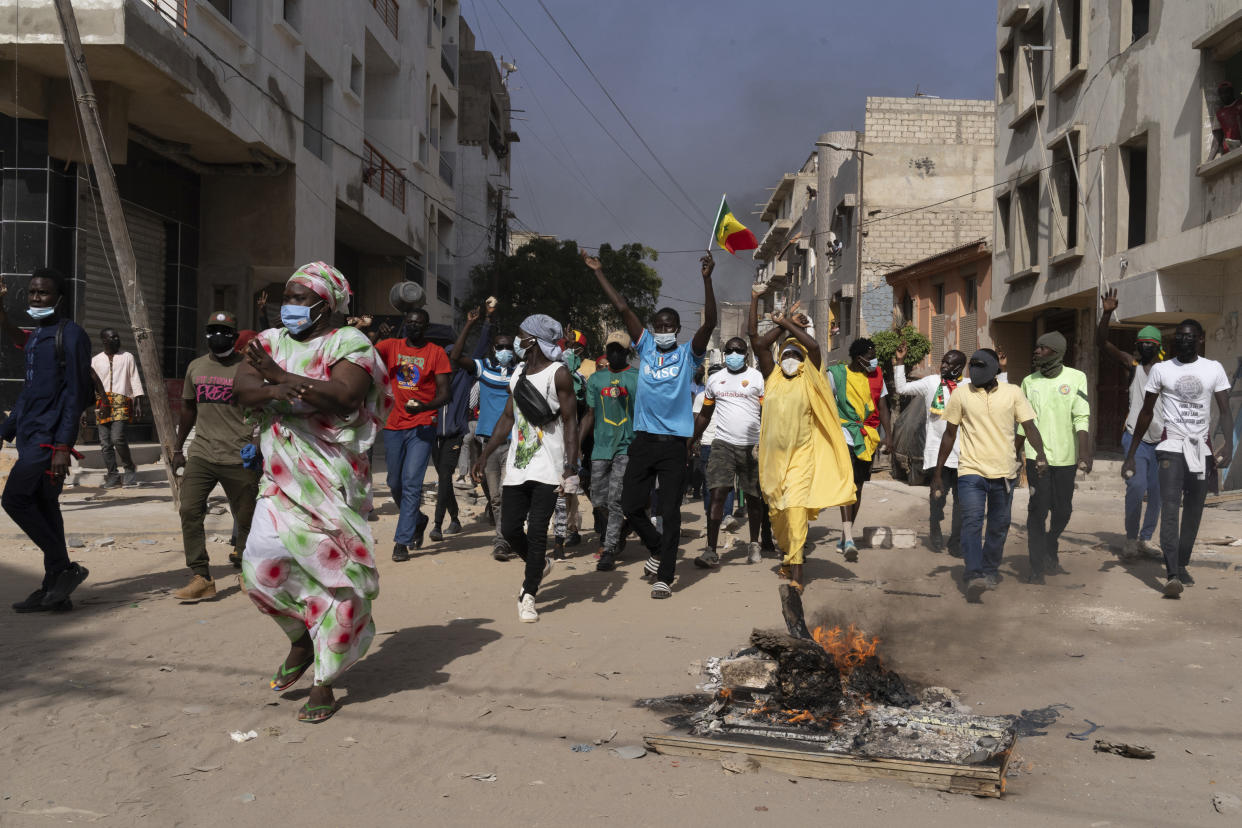A rights group says Senegal's security forces have killed at least 3 people during protests

DAKAR, Senegal (AP) — Security forces in Senegal have killed at least three people, including a 16-year-old boy, during protests in recent days denouncing the president's decision to delay elections, Amnesty International said Tuesday.
The rights group in a statement said protesters were killed during a crackdown in the capital, Dakar, and in Saint-Louis and Ziguinchor cities on Feb. 9 and 10, with 16-year-old Landing Camara shot in the head.
Another large protest by civil society, opposition and trade unions was expected Tuesday evening, but organizers said authorities hadn’t authorized it. “This is everything we are fighting against,” one organizer, Amadou Samb, told The Associated Press.
Senegal's government cut access to mobile internet services on Tuesday. The communications ministry said “hateful and subversive” messages were circulating online.
Senegal has seen more than a week of protests after President Macky Sall delayed elections scheduled for late February, citing time needed to resolve controversies over the disqualification of some candidates and a conflict between the government's legislative and judicial branches.
Senegal’s parliament voted last week to delay the election until Dec. 15. The Constitutional Council is expected to rule within days on whether it agrees.
Sall has been accused of trying to delay leaving office, something he denied to during an AP interview last week.
The postponement has caused regional and international concern that one of West Africa's most democratic countries could go the way of some of its neighbors, which have been mired in coups and insecurity.
On Tuesday, the United Nations said it was deeply concerned about Senegal's tense situation and called for prompt, thorough and independent investigations into the killings of protesters.
“It is crucial that the authorities unequivocally order the security forces to respect and ensure human rights, including the rights to freedom of expression, association and peaceful assembly,” said Liz Throssell, a spokesperson for the U.N. human rights office.
She called on the government to ensure that its proposed national dialogue be as inclusive as possible. Senegal's president has said a national dialogue could start as early as this week, but he warned that the country was in a fragile moment and political actors needed to be careful.
The West African regional bloc known was ECOWAS began a three-day parliamentary diplomatic mission to Senegal on Monday to discuss the situation.
___
Associated Press reporter Jamey Keaten in Geneva, Switzerland, contributed.

 Yahoo News
Yahoo News 
